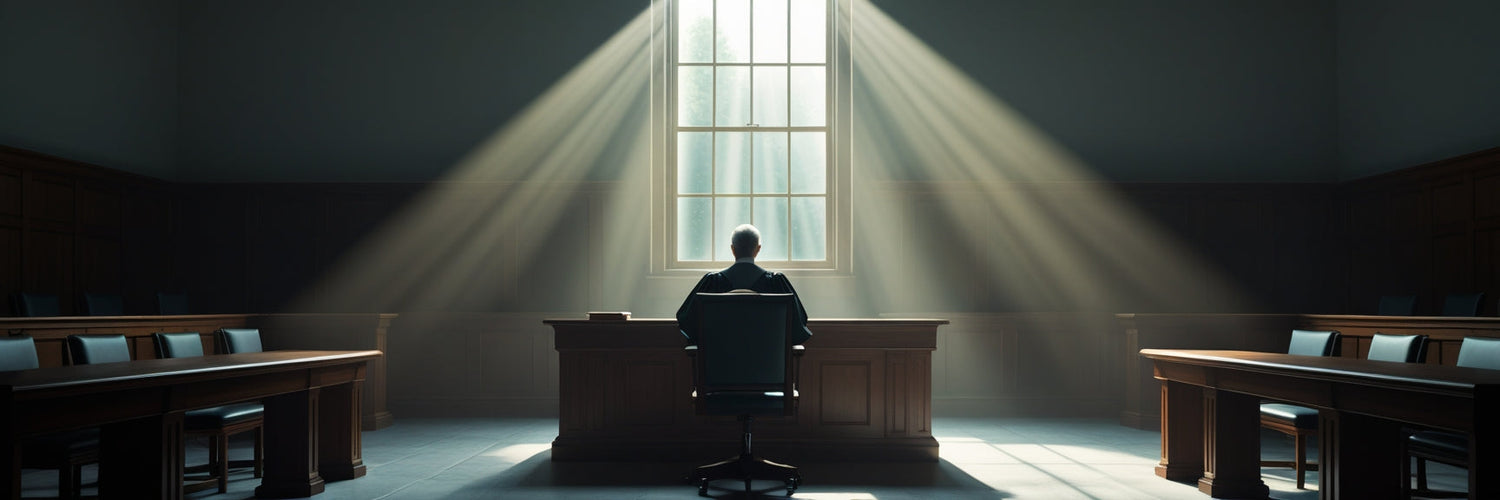Augustine’s View on Justice and Law
St. Augustine, one of the most influential thinkers in Christian philosophy, argued that a law that lacks justice is no law at all. Rooted in his broader theological and moral philosophy, this principle suggests that laws must align with divine justice and moral truth to be legitimate. In De Libero Arbitrio, Augustine states that human law is only just when it reflects eternal, divine law—otherwise, it becomes a mere tool of oppression rather than a force for righteousness.
For Augustine, justice is not defined by human institutions or legal systems, but by a higher moral order. A just law must promote the common good, uphold human dignity, and align with divine principles. If a law fails to meet these criteria—if it enforces discrimination, injustice, or tyranny—then it is not truly a law but an abuse of power.
What Makes a Law Unjust?
Augustine’s philosophy provides a clear understanding of what separates just laws from unjust ones. A law is unjust when it contradicts divine or natural law, as human legislation must be an extension of eternal moral principles rather than a creation of convenience or power. When laws impose suffering or promote injustice, they fail to serve the moral order that Augustine believed should govern all human affairs. He viewed any law that upholds oppression or denies fundamental human dignity as illegitimate.
Moreover, laws that lack the consent of the governed or serve the interests of the powerful rather than the broader community cannot be considered just. Augustine did not advocate for absolute democracy, but he emphasized that laws must reflect a purpose beyond control and must aim for the well-being of the people they govern. A law imposed without moral justification, reason, or fairness loses its authority in his view, as true justice must be universal and not subject to the shifting interests of rulers.
The Criteria for Resisting an Unjust Law
Augustine believed that when confronted with an unjust law, individuals have not only the right but the moral duty to resist. However, he maintained that resistance must be rooted in ethical principles rather than rebellion for its own sake. Defying an unjust law must be an act of moral conscience, one that seeks to uphold justice rather than simply reject authority.
For resistance to be justified, the injustice of the law must be clear and not based on personal grievances. Opposition should not descend into chaos or violence but should reflect a higher commitment to restoring justice and moral truth. Augustine saw resistance as a means to return human governance to alignment with divine law, not as an opportunity to dismantle legal structures entirely. Those who resist must seek restoration rather than disorder, ensuring that their actions reflect justice rather than destruction.
Augustine’s Influence on Modern Civil Disobedience
Augustine’s ideas on just and unjust laws have deeply influenced later thinkers and movements. His assertion that an unjust law is no law at all was central to the philosophy of Martin Luther King Jr., who cited Augustine in his famous Letter from Birmingham Jail. King argued that civil rights activists were morally obligated to resist segregation laws, as they violated both natural and divine law.
Augustine’s principles continue to resonate in contemporary debates on social justice, human rights, and political resistance. Whether in discussions about authoritarian rule, systemic discrimination, or unjust legal systems, his framework provides a moral basis for challenging laws that fail to uphold justice.
The Call to Uphold Justice
Augustine’s philosophy reminds us that laws derive their legitimacy not simply from power but from their alignment with truth, morality, and human dignity. When laws fail to meet these standards, resistance becomes an ethical obligation. However, this resistance must be guided by reason, justice, and a commitment to a higher moral order. The question is not merely whether a law exists but whether it serves the true purpose of law—to create a just and moral society.






















































